How can we shape our future before it shapes us?
Imaginize.World is a video podcast on what to think about, talk about and do.
• Sci-Fi — Fiction & Vision, Seeds for Change
• AI Is Ours to Shape In Our Paradigm-Shifting Age
• Our Shared Global Future: What and How
• Climate Justice: Success or Failure?
• Learning Beyond Schools
• Face Your Dreams, Change the World
• The New Face of Healthcare and Science
• New Shapes of Organizations: Empowerment & Trust
WATCH ON YOUTUBE 
A collective of visionaries, pioneers and activists from Australia, Brazil, Canada, China, India, Indonesia, Kenya, Lithuania, Luxembourg, Nigeria, South Africa, Switzerland, Uganda, UK, and USA.
The AI-and-Humans Age
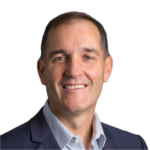 Ross Dawson Futurist and entrepreneur who helps people think about the future and learn by actually doing. Creator and leader of the global community Humans+AI. Future major ethical dilemmas will be digital divide, cognitive augmentation, longevity technologies, and the impact of attention capture by technology companies. “The biggest dilemma which is already emerging, is around whether or how we will augment ourselves with technologies.”
Ross Dawson Futurist and entrepreneur who helps people think about the future and learn by actually doing. Creator and leader of the global community Humans+AI. Future major ethical dilemmas will be digital divide, cognitive augmentation, longevity technologies, and the impact of attention capture by technology companies. “The biggest dilemma which is already emerging, is around whether or how we will augment ourselves with technologies.”
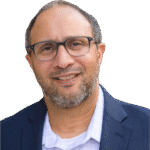
Lionel Robert is a professor of information and robotics at the University of Michigan. He’s also director of their autonomous vehicle research collaboration, MAVRIC.
He has researched different dimensions of technology and humans. In particular, the emotional relationships between humans, robotics and technology. “People will develop strong relationships with these different types of technology and they will become integrated into society in a way that we probably find very difficult to understand.”
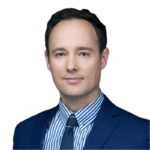
Martynas Kairys Based in Lithuania, vibe coding expert, Director of AI Strategy and Development at Shift4, a company redefining commerce by simplifying complex payments ecosystems across the world. Leads the AI initiatives. In the AI era he emphasizes the importance of critical thinking and adaptability, especially for the younger generation. “Progress depends on if we have the right guardrails in place, but too many guardrails may stop progress.”
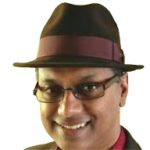
Rawn Shah Decades of experience as a humanist technologist: Java, cloud computing, enterprise collaboration. Now he is deeply involved in “responsible AI” — how AI systems can be developed to align with human values and ethical principles. Works on the challenges of making AI systems trustworthy, accountable, and transparent. “Soon there’s going to be more AI-generated information than human-generated information. It’s feeding on itself.”
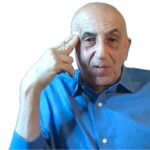
Art Kleiner Writer, editor, entrepreneur. Co-author: The AI Dilemma, The Wise Advocate, The Fifth Discipline. Author: The Age of Heretics: A History of the Radical Thinkers Who Reinvented Corporate Management, first published in 1996. Early detector of radical, gig mindset, non-conventional thinkers triggering innovation. “We have a lot to learn in the intersection of machine learning, organizational learning, and human learning .”

Cortney Harding AI and VR expert. Author: The Spatial Race. How to prepare for our Future in the Meta-Physical World. Founder: Friends With Holograms. World Economic Forum Member | Taught at CalTech, NYU, Barnard. Forbes article: What Every Worker Needs To Answer: What Is Your Non-Machine Premium? Creates spatial computing experiences for Fortune 100 clients. “We’re in a weird middle territory, finding out what the next path forward is.”
Sci-Fi — Fiction and Vision, Seeds for Change
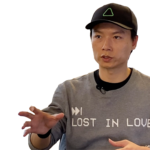
Chen Qiufan Leading Chinese writer and visionary. Script consultant for “Resurrection,” he called “sci-fi poetry cinema” which won the Special Prize on 25 May 2025 at the 78th Cannes Film Festival. Co-author AI 2041: Ten Visions for our Future. Author: Waste Tide. Many other works. “This is so unique about science fiction. It’s not science nor fiction, it’s something in between, the space, the tension, the punctuation between two worlds.”
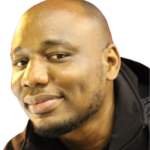
Wole Talabi Engineer, writer, and editor. Author: Shigidi And The Brass Head Of Obalufon (best books of 2023 by The Washington Post), Incomplete Solutions and Convergence Problems. Storytelling shapes perceptions, politics, traditions & technology for better futures. AI for Consulting Ancestors. “A consensus negotiated reality based on all our stories we agree on is our reality.”
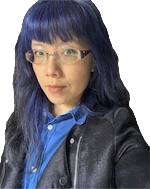
Xueting C. Ni, writer and curator of contemporary Chinese culture and literature. Among other works, she has compiled the anthology Sinopticon, which shows the diversity and depth of the Chinese science fiction tradition. One of her goals is to bring light to modern China from historical and contemporary perspectives. “We need stories from people from different backgrounds in society. That enriches storytelling and our understanding of the world.”

Debbie Urbanski Author: Portalmania: Transitions between us and others, and between different versions of ourselves. After World: Great transition and a new awakening? Preserve human life or earth? Short story: “An Incomplete Timeline of What We Tried”. Topics: Why is witnessing important as the world transitions? Extend personhood beyond humans? “What’s the most important? Is it individual freedom or is it preserving the planet?”
Our Shared Global Future: What and How
 Deb Chachra, professor of engineering, works at the intersection of technology and society with an emphasis on systems, education, design, and materials. She wrote How Infrastructure Works: Inside the Systems That Shape Our World. “The next generation: your job is not to fix the problems of the grownups. Your job is to actually build out this new world, and in so doing, you’ll fix the problems of the grownups.”
Deb Chachra, professor of engineering, works at the intersection of technology and society with an emphasis on systems, education, design, and materials. She wrote How Infrastructure Works: Inside the Systems That Shape Our World. “The next generation: your job is not to fix the problems of the grownups. Your job is to actually build out this new world, and in so doing, you’ll fix the problems of the grownups.”
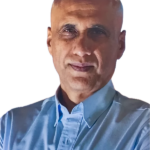
Sohail Inayatullah First UNESCO Chair in Futures Studies for Sustainability and Humanity, IIUM, Malaysia. Developed futures technique of Causal Layered Analysis (CLA) which examines issues at four levels – data, systems, worldviews, and narratives/metaphors. “The metaphors I use are invisible hand, which worked for a while, the visible hand, where the state intervenes. Then what we’re moving towards—shared hands, cooperatives, peer-to-peer platforms.”
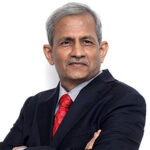
Sundeep Waslekar Author: A World without War. Peace policy concepts discussed at UN Security Council. Chairman of the Strategic Foresight Group, India-based think tank that has worked on 65 countries since its founding in 2002. “The 21st century faces 4 problems: nuclear, AI and other emerging technologies, militarization, and lack of a conflict resolution mechanism with mandated authority.”

David Weinberger Author: Everyday Chaos, Too Big to Know, Everything Is Miscellaneous, Small Pieces Loosely Joined, and co-author of pioneering Cluetrain Manifesto (1999). Senior researcher at the Harvard Berkman Klein Center for Internet & Society. Unanticipation. “We cannot anticipate what our children will want or what the world will be, the best thing to do is to open up as many possibilities as we can.”
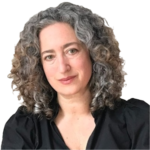
Michelle Manafy Editorial Director @Digital Content Next, a Media Industry & Content Strategy Expert: AI & Media. Focus: building a strong, healthy, trusted media ecosystem. “We need to look at every new technology and be active participants in shaping not only the way it’s used, but the way it’s governed.”
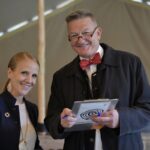
Chris Luebkeman and Jonelle Simunich Chris is at the Strategic Foresight Hub, Office of the President, ETH-Zürich. Jonelle is a futurist and civic designer with a background in architecture, foresight, and cultural systems. They founded [y]our2040: “Co-creating the world we want”. “Human condition is a series of stories. Some are past, some future, some today. Which stories do you want to believe? And create?”
Climate Justice: Success or Failure?
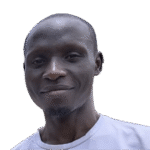 Godfrey Ssekiziyivu is a partner and Chief Technology Officer in End Plastic Pollution, a waste management operation that started in Uganda. It is based on the circular economy model. It builds motivation for helping keep the environment free of waste. “Humans fear most what they don’t know. But if you understand something, then you cannot fear it, you just approach. So if kids are introduced to computing, AI and technology, they will have a brighter future.”
Godfrey Ssekiziyivu is a partner and Chief Technology Officer in End Plastic Pollution, a waste management operation that started in Uganda. It is based on the circular economy model. It builds motivation for helping keep the environment free of waste. “Humans fear most what they don’t know. But if you understand something, then you cannot fear it, you just approach. So if kids are introduced to computing, AI and technology, they will have a brighter future.”

Pieter Franken Fintech. Co-founded and led Safecast (Fukushima), most successful citizen science initiative in the world. (The largest open dataset of background radiation measurements ever collected.) Founding Member of ASEAN Innovation Network (AFIN, now Synfindo), a nonprofit founded by MAS (Monetary Authority of Singapore). “How do you build something that sustains itself even though opinions and ideas change?
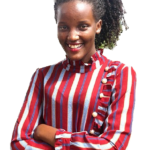
Vanessa Nakate Founder of Rise Up Movement. Climate justice activist based in Uganda. UNICEF global goodwill ambassador. Author of A Bigger Picture. Malala Fund & Global Witness Board. Intern at E3G. Bloomberg Business Week: “one of the green ones to watch” (2024). “The missing piece in climate education is the sense of urgency.”
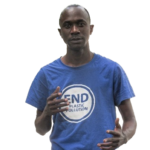
Nirere Sadrach Founder of “End Plastic Pollution“, youth-led organization to end single-use plastic by corporations and Project Kollekt, model for how local communities can deal with people learning about plastic. The science of plastics and what to do for a healthier world. “This is the time we should be empowering our young people to innovate, solve problems our communities are facing.”
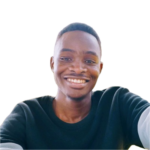 Nicholas Omonuk Climate advocate from pastoral tribe in eastern Uganda. Represented Most Affected People and Areas (MAPA) at COP27. Founded End Fossil Occupy Uganda, a local climate movement for a phase-out of fossil fuels and just transition for Africa. “Bottom up. People have to be empowered so they can address the issues of climate change.”
Nicholas Omonuk Climate advocate from pastoral tribe in eastern Uganda. Represented Most Affected People and Areas (MAPA) at COP27. Founded End Fossil Occupy Uganda, a local climate movement for a phase-out of fossil fuels and just transition for Africa. “Bottom up. People have to be empowered so they can address the issues of climate change.”
Learning Beyond Schools

Sugata Mitra physicist, educational pioneer. Preparing children for their futures, not our pasts. Creator: “Hole in the Wall” experiment leading to School in the Cloud and Self-Organized Learning Environments. Winner of one million dollar TED prize in 2013. Predicts Neuralink: The internet will vanish into our heads. “The internet will become so integrated into our lives, it will blur the line between knowing and not knowing.”
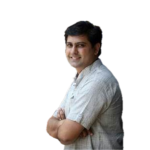
Sachin Joshi Founder of the Espalier Experimental and Heritage Schools that – got the first prize by the Maharashtra government in 2014. Creator of “Education on Wheels” in 2007. It became AI on Wheels (2025). First Indian to speak on “Education and Democracy” at EU Council. Philosophy: Ghandi + Montessori. “IQ is being replaced by AI. Therefore, let’s focus on developing our children’s SQ, that is social quotient, and EQ, that is emotional quotient.”
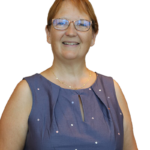
Florence Devouard 1st President of Wikimedia Foundation after Jimmy Wales. Wikimedia in Residence (WIPO). Wiki Loves Africa, Ecoles d’Afrique. Many more initiatives. Wikimedia in the age of AI. Wikimedia versus TikTok. “Our 2030 goal is that Wikimedia will be the essential infrastructure to support the open source, the open knowledge movement.”
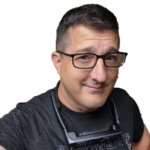
Mark Gröb Building Next Gen Products for UPS Enterprise. Applications in Training, Real-Time Data Visualization and Emerging Innovation Sectors. XR Subject Matter Expert on SAR Counsel for UPS. Training and developing Federated SMEs in all Global wide Business Groups. “People with boots on the ground are the most familiar with problems. Involving them in design is key.”
Face Your Dreams, Change the World
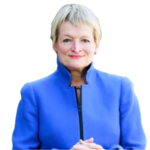
Rita McGrath professor at Columbia Business School. Advisor and speaker, ranked among top 10 management thinkers in the world. Thinkers 50 Top 10. Author: Seeing Around Corners and The End of Competitive Advantage. “We need to get away from the stimulus response world, and think about what would give you joy, how could you make an impact on other people?”
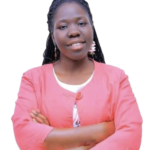
Agatha Rachael Akullu Creator “Read us Africa“, literacy program in Africa. Book publisher, copywriter, editor. SDG-4 Global Youth Ambassador with Their World. Global Peace Ambassador. Millennium Fellow 2023. YALI Fellow (Young African Leaders Initiative). “Good readers really make good leaders. If we want to come up with good leaders, we need to first of all, start with empowering readers”
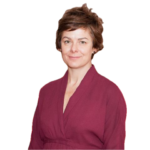
Jillian Reilly Author: The Ten Permissions: Redefining the Rules of Adulting in the 21st Century. Old logic and new logic. Underlying themes: activism, future-oriented thinking. “You need to design your own portfolio. an approach to your life that is not about a singular role, company, or set of capabilities, but something more strategically diverse.”
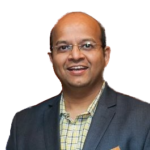
Mandar Apte Educator and Executive Director at Cities4Peace. Documentary “From India With Love“. Co-founder of Media Rise for the power of positive storytelling, media, art and design to make the world a better place. “It’s okay to think big even if you can’t achieve it. So that permission checkbox starts with you.”
The New Face of Healthcare and Science
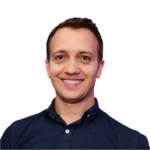
Henrique Dias Founder and CEO of NoHarm, A nonprofit startup in Brazil that develops AI-based tools to improve patient safety in the public healthcare system. NoHarm has received awards and project grants from the Google Research Awards for Latin America, the Bill & Melinda Gates Foundation, and others. “AI is never able to make the final decision, AI should be a decision support system in the healthcare system.”
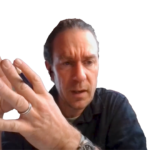
Robin Vincent-Smith MSF (Doctors without Borders). Front lines in Africa. Then central Learning Officer: climate and environment. Striving for freedom from a job description is Robin’s motto. MSF works to be where the patients and families are, including on social media. “Our DisMis project—Disinformation, Misinformation—gives voice to patients and shares scientific research.”
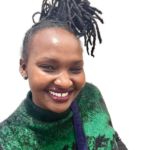
Joyce Kimutae Climate scientist based in Kenya. Focus on Attribution Science: quantifying the role of human influence on the climate . Helping build causation—necessary for climate litigation. Doctor of Philosophy, Researcher at U. of Cape Town, Investigates Extreme Weather and Climate Events. “The legal system today is not built for dealing with responsibility and liability for climate events impact.”
New Shapes of Organizations – Empowerment & Trust

Bill Fischer MIT Senior Lecturer, IMD Professor Emeritus of Innovation Management. Co-author Reinventing Giants (about Haier), The Idea Hunter and Virtuoso Teams. Former President of the China Europe International Business School (CEIBS) in Shanghai. “We should have people whose role is to be advocates for the future, charged with saying, what about this and what about that, and have we forgotten this? Then, the future will be part of making decisions.”
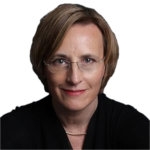 Janka Krings-Klebe
Janka Krings-Klebe
Co-author: The Antifragile Organization: From Hierarchies to Ecosystems. Founding member of Business Ecosystem Alliance. Co-founder and managing partner of @co-shift GmbH. Going from digitization to digitalization. “The only solution when the market moves fast and the customer even faster is you need to stay close to your customer to sense those weak signals, early signs of something changing.”
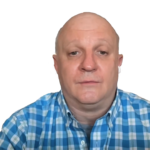
Thomas Vander Wal Advisor and strategist for systems and software. Created concepts “folksonomy“, “personal info cloud” and “model of attraction” all focused on the person. Thomas c
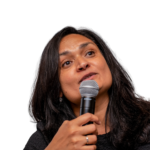
Gargi Mishra long-time expert in the mining industry. Tracker of mining trends, including forces influencing sustainability, society, power, and value creation. The next frontier of mining is shaped in code, in trust, in climate logic, and in shared futures. Mining is becoming negotiated, algorithmic, sovereign, and intergenerational. “In the future the question won’t be, where was it mined, but how did you help return the value as a consumer as well. Citizen partnership with the mining interest —sustainability meets citizenship.”
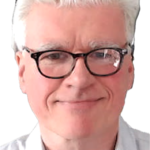
Joachim Stroh Specialist in (D)AOs Decentralised Autonomous Organizations and AOs Adaptable Organizations). They operate on the principles of decentralization and trust. Founder of Hypha DAO. The DAO toolkit helps individuals, projects, and organizations achieve more together. Energy systems. Power of the Many. Democratizing Energy Sharing. “In fact, we call the DAO the D-H-O. So it’s a decentralized human organization. it’s human, its people who are making decisions.”

Alex Prate Co-founder of Hypha DAO, Hypha Energy, co-creator of SEEDS, a regenerative finance infrastructure, contributor to the Regenerative Economy and CEO of Realifex (well-being intelligence). C
